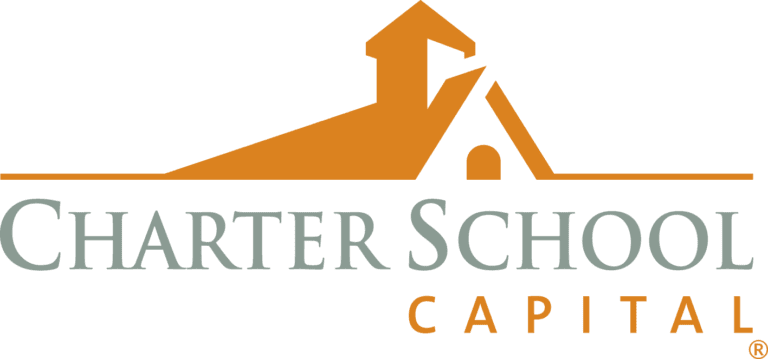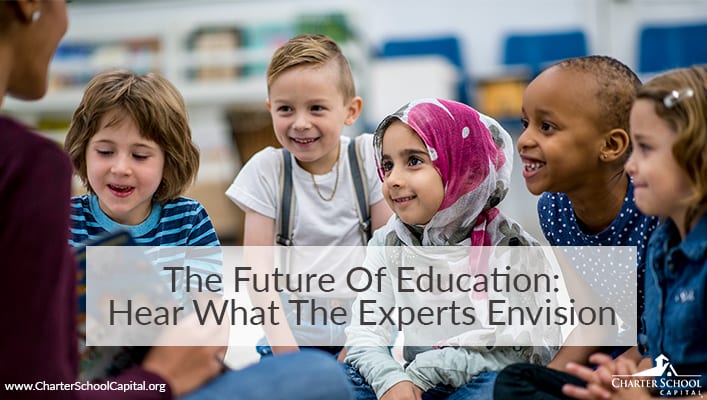The Future Of Education: Hear What The Experts Envision
Editor’s note: This post was originally published here on April 15, 2019 by Education Dive and written by Jessica Campisi. While our main public education model has remained the same for generations, proponents of education reform are fighting for change. Read on to hear what this distinguished body of experts as they share their thoughts on the future of education and what they envision a modern educational system should look like. One thing they have in common? They’re all focused on building an educational model that provides the best possible futures and outcomes for all of our nation’s children.
RISE 2019: What do education experts envision for the modern schoolhouse?
As the industry shifts and tackles its top challenges, experts in early-childhood, charters and testing shared how each fits into a new, more innovative educational model.
When it comes to education, the basic framework has remained the same for decades. But as new pieces fade in and out of the classroom experience, some experts and scholars are wondering if it’s time to take a look at the overarching model itself, rather than just its parts.
At the 2019 Reagan Institute Summit on Education in Washington, a five-expert panel, with each member representing different areas of education — early-childhood, charter schools, testing, blended learning and wraparound services — gathered to tackle the question of what the modern schoolhouse should look like in today’s educational climate. The panelists were:
- Diana Rauner, president of the Ounce of Prevention Fund
- Nina Rees, president and CEO of the National Alliance for Public Charter Schools
- Trevor Packer, senior vice president of Advanced Placement (AP) and instruction for the College Board
- Howard Stephenson, Utah state senator
- Dale Erquiaga, CEO of Communities in Schools
“We live in an era when change is rapid in so many aspects of our lives,” former Vermont Gov. Jim Douglas said in introducing the panel. ”Our education system needs to evolve to equip students with the tools they’ll need to succeed.”
Each panelist used their knowledge bases to describe their thoughts on modern education and what it needs. Below are some of their remarks.
EDITOR’S NOTE: The following responses have been edited for brevity and clarity.
DIANA RAUNER: We know that children are born learning, and we know that the critical foundations of everything we’re trying to build — in terms of school success, workforce development, citizenship — really begins with those foundational skills that are built at the very first years of life. Social-emotional skills like self-regulation, collaboration, grit, executive function — all of those things that allow students to become successful students require a level of self control and development that begins at the very earliest years of life. We have to understand that parents are the very first teachers of their children, and so when we think about the early-childhood piece of education, we have to include parents and families all the way through, but particularly at the earliest years.
What we [also] know is the early-childhood system isn’t really a system, so while some educational experiences will happen in traditional schools, a lot of early-childhood education will happen in a lot of different places. So that system has to include community centers, families, homes — as well as churches and other public settings.
NINA REES: The goal of many of those who started the [charter] movement was about giving teachers more agency in what a school would look like. And to this day, most of our charter school leaders are former teachers and principals in the traditional system who came to the chartering space to do something different. When you look at our highest-performing charter schools … all of these schools have a number of things in common, which is that not only are they innovating and serving their students well, but they’re now also doing something that we never thought was possible, which was to get these students to college and through college.
I think it starts at an early age — we have to make sure that our children are ready to start school [and are] ready to learn. But if our K-12 system is not able to sustain the gains in early-childhood education, it’s very difficult for them to then graduate high school ready for college. So, we’re part of this puzzle through and through, and I hope that despite some of the backlash in some of the states, everyone understands that at the end of the day, if you really want to innovate in the public school system, charter schools are probably your best bet.
TREVOR PACKER: I don’t see how we ever become truly internationally competitive across disciplines unless students have time to focus on doing a few things very well. There isn’t a limitless amount of time for students to do hours and hours of additional homework and still have some sort of family and faith and fun during their secondary school years. So, I worry about that, and I worry about the pressure from higher education on students to spread their time very superficially in their high school years.
We have a college admissions process where there’s 10 slots for students to enter all their extracurricular activities. When you have 10 slots, you feel like, “Well, I should be doing 10 extracurricular activities.” So, I have concerns about all of those pressures, and some of those pressures are AP exams. We find colleges that have a formula in the background that will say, “If a student takes 10 APs, we’re going to give them extra points in college admissions,” when our research shows that one or two APs a year maximizes your college readiness.
We need to partner more effectively with higher education to stop the madness. There’s been all this attention on the Hollywood scandal, but what about all these families that are playing by increasingly Byzantine rules for college admissions? How can we calm down and give students time to really do a few things well in high school? What can high schools do, what can state standards do, [and] what can state requirements do to clear the clutter and give students time to excel?
HOWARD STEPHENSON: It’s not about the device and it’s not about the computer. We’ve heard a lot about parent choice and teacher agency, but I’d like to propose that the most important marketplace that we are often ignoring is a student’s agency. That is the marketplace that matters. The engagement of students — that’s what matters. And that’s why in Utah, we have K-3 reading software for 55,000 students who are below grade level.
Teachers use this as a tool to do the heavy lifting of instruction in competency for reading, rather than replacing the teacher. The teacher then uses the prompts made by the software to provide 1-on-1 or small group instruction. So, rather than trying to be a sage on the stage … we honor the agency of the student by engaging high-quality software.
This should be commonplace — if we use the tool not to replace a teacher, but to repurpose the role of a teacher to be more effective.
DALE ERQUIAGA: I grew up in rural America. And I grew up at a time when my parents still told stories of their schoolhouse being a place where you went for dances, you went for rummage sales, you went for potlucks after school hours. Schools were the centers of communities. And in my lifetime, we turned them into walled environments that looked as much like prisons as they looked like schoolhouses.
I think what you’re seeing in the country right now is a resurgence of that desire for whole communities and schoolhouses to be more welcoming and feel like they are places for families not just in those school hours, but [also] in evenings, afternoons, weekends and summers, as well.
I work in an organization that’s name is exactly what we do — I work in communities in schools. We broker community resources inside schools, whether those are food, clothing, shelter, transportation or something much more complex. And we find that that interaction of communities and the schoolhouse and families and students is exactly what the most at-risk kids in our country need to get across the finish line.
 Since the company’s inception in 2007, Charter School Capital has been committed to the success of charter schools. We help schools access, leverage, and sustain the resources charter schools need to thrive, allowing them to focus on what matters most – educating students. Our depth of experience working with charter school leaders and our knowledge of how to address charter school financial and operational needs have allowed us to provide over $1.8 billion in support of 600 charter schools that have educated over 1,027,000 students across the country. For more information on how we can support your charter school, contact us. We’d love to work with you!
Since the company’s inception in 2007, Charter School Capital has been committed to the success of charter schools. We help schools access, leverage, and sustain the resources charter schools need to thrive, allowing them to focus on what matters most – educating students. Our depth of experience working with charter school leaders and our knowledge of how to address charter school financial and operational needs have allowed us to provide over $1.8 billion in support of 600 charter schools that have educated over 1,027,000 students across the country. For more information on how we can support your charter school, contact us. We’d love to work with you!
